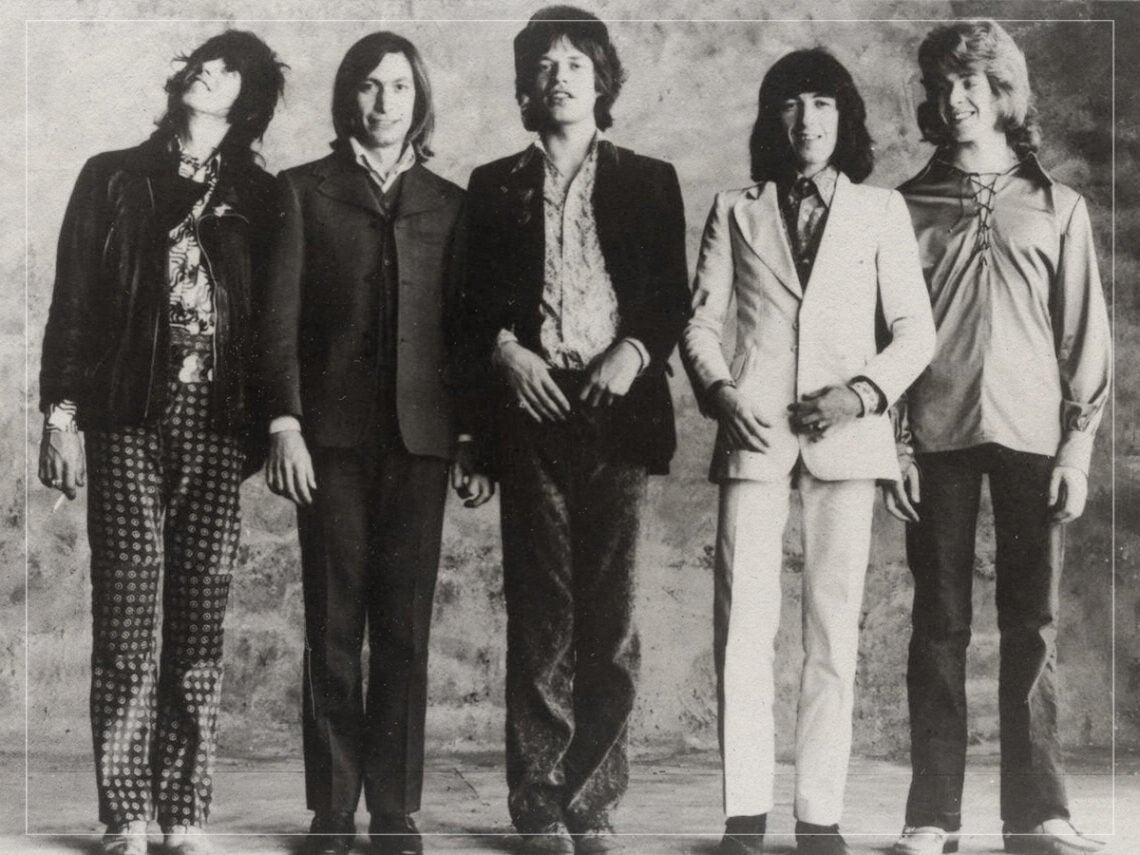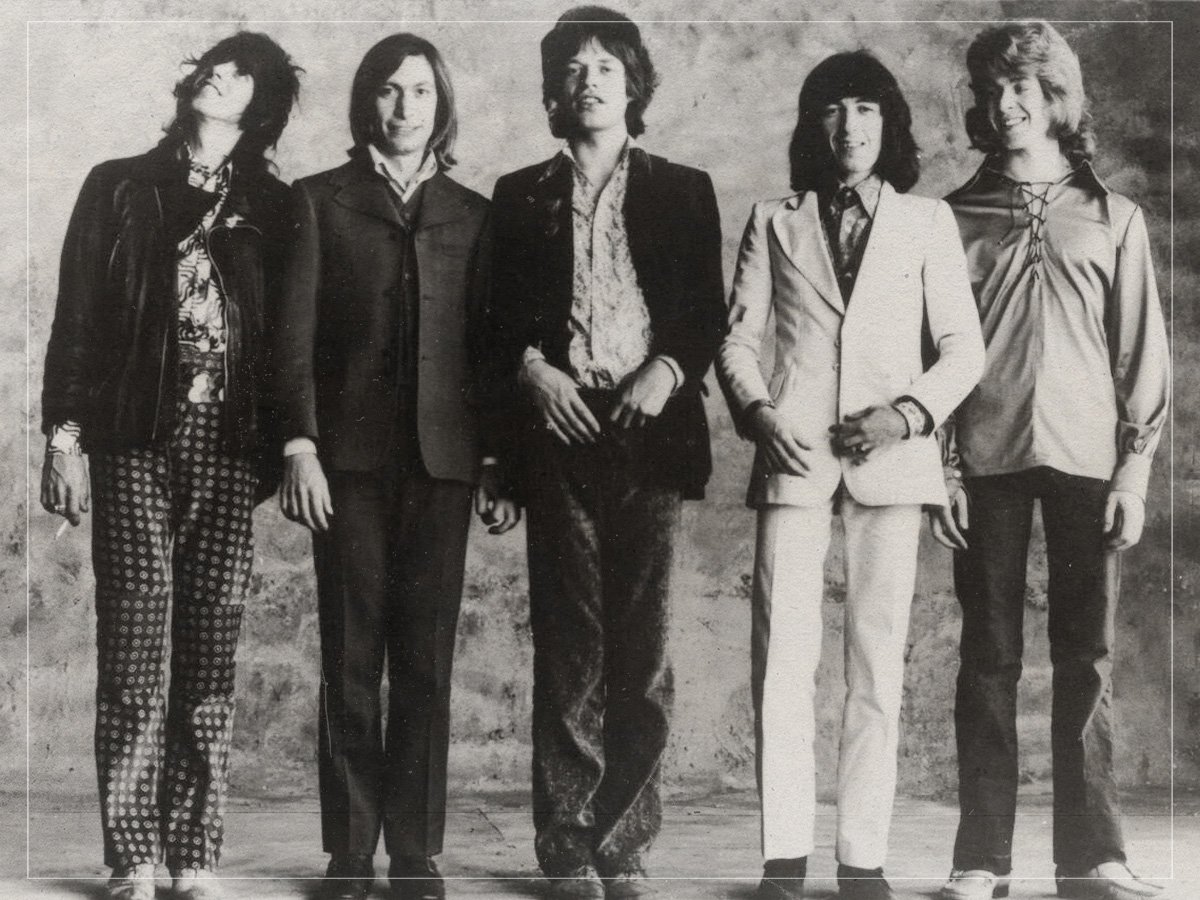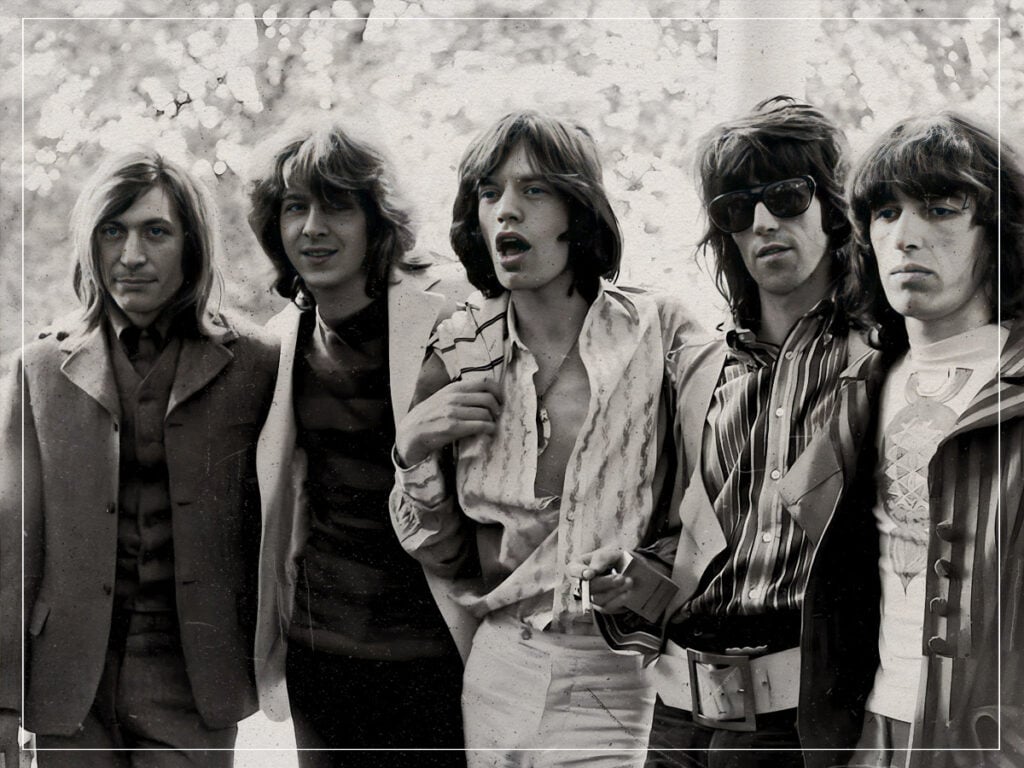
(Credits: Far Out / Alamy)
Sun 25 May 2025 22:00, UK
Lou Reed once said, “I don’t think the British should play rock ‘n’ roll.” Suspecting this quip was at least partly ironic, Bill Boggs, who was interviewing him, followed up by asking him what they should play. “I don’t think they should play anything,” was his curt reply. While ‘anything’ is a little extreme, perhaps he was right on the former point.
What is British rock ‘n’ roll? The phrase itself feels like an oxymoron. Swagger, attitude and pumped-up blues are not facets we excel at, favouring beige, politeness and the abject acceptance of failure instead. While America was channelling the liberation of the 1950s into the visceral pandemonium of Elvis Presley, the Brits were going cockahoop about a bucktooth clown from Wigan called George Formby, singing about how he’d just seen a pair of tits during his lowly cleaning windows duties.
However, the one thing we are good at, as our unfortunate colonial past proves, is theft and assimilation. Two things demonstrate that better than anything: the fact that tea, the ultimate British drink, is not from Britain, and The Rolling Stones, the ultimate American rock band, are from Britain.
When the Stones were just starting out, their only aim was to become the best blues cover band in London. According to Paul McCartney, it was only their size that really changed. “I’m not sure I should say it,” he told The New Yorker, “But they’re a blues cover band, that’s sort of what the Stones are. I think our net was cast a bit wider than theirs.” Pick the barbs from his comment, and you’re left with a grain of truth.
The Rolling Stones have always been rooted in the blues. Rock ‘n’ roll itself is merely an electrified permutation of the blues, so it makes sense. Most British bands couldn’t avoid throwing in a bit of Blighty’s brass band sound (see ‘Penny Lane’), literary preoccupation with paradoxically pleasant melancholia (see ‘Waterloo Sunset’), or a bit of working class lunacy (see ‘My Generation’). But the Stones took a sincere approach to honouring the stateliness of the blues.
“Everybody said, ‘Don’t do it, because you’ll destroy your career’,” Bill Wyman recalls of the anti-blues feedback that they constantly received from those apparently ‘in the know’. However, Brian Jones was propelled by a vision, and he was determined to bring this dream to fruition. “He created the band,” bassist Wyman affirms, “it was his idea to play blues when blues was unheard of in England.”
Granted, it most certainly wasn’t unheard of in England. It was, in fact, so resoundingly celebrated that it transformed our culture, as the British Invasion would soon prove. However, very few artists dared to simply replicate it. But the Stones wanted to be as true to it as any young, middle-class English obsessives could be.
They might have been missing out on authentic footing, but as it would transpire, this turned out to be a blessing. Contrary to McCartney’s claim that they remained a blues cover band, they have country tinges on tracks like ‘Dead Flowers’, Californian psychedelia on songs like ‘Ruby Tuesday’, and a bit of Chicago swing on anthems like ‘Miss You’, to prove that they actually incorporated every offshoot of American music that the humble blues could house.
From this standpoint, according to Mick Jagger, they’re a more accomplished and well-rounded American band than any other band in history. “We’re probably going to gloss over the achievements of some good American bands of the time, but maybe it’s because British bands had a good overall history of the thing – blues, country, rock, black music, jazz, whatever,” the pouting frontman explained to Paul Du Noyer.
“Whereas, if you were from Memphis, you might be so heavily influenced by your local music that you couldn’t grapple with any other style. So, the Allman Brothers, from Georgia, you are the music of Georgia, you’re interpreting that music, and it’s hard to step out of it. Whereas if you’re suburban, you actually are creating this synthesis,” he continued.
By no means is that a slight on the Georgian sound – it is arguably the most pivotal contributor to modern culture – but because it is so robust and singular, it is less broad as a result. Put it this way, an Italian never asks what they are having for dinner that evening, the answer is always going to be Italian food—but a British person couldn’t expect to live off beans on toast for a lifetime, so by virtue of being less culturally discreet our scope is expanded to Chicken Tikka Massalla too, so to speak.
Keith Richards and his cohorts did this with the American music cuisine. They wanted a slice of the exciting pie the US was serving, so they conflated the whole recipe book, flooding over in song. “It’s also that middle-class knowledge, the sense of history and the desire to know everything, like how Slim Harpo’s harmonica licks work,” Jagger continued.
“Of course, American bands did it,” he added, “but English bands did it with a breadth of American music, and it eventually synthesised without them knowing it. That’s what happened to The Rolling Stones, who started off as ‘a blues band’, but a blues band who played Buddy Holly covers in their spare time. Once all that snobbery was thrown out the window, you could play Buddy Holly without anyone turning their noses up.”
Where are the Rolling Stones from?
And so, with a melting pot, a spoon, a passion for the blues, and attitudes that seemed to be borrowed from some unknown town many miles from their native Dartford, a group of London scallies took on America in every which way. 200 million record sales later, you’d be hard-pressed to deny the group’s standpoint that they conquered, too.
However, much like most of the contents of the Natural History Museum, there’s an argument that they should just hand over the ownership of those songs. They stand out from the slew of British Invasion bands in this regard—they weren’t quite invaders, more like prospectors hoping to play themselves off as locals.
Maybe that’s even why Brian Jones had to part ways with the band. It’s alleged that when the founding member was asked what he’d do after being fired from The Rolling Stones, he replied, “I’m going to have a cup of tea, like any good Englishman”. If he were truly aligned with the ethos of the group, then tea would’ve been the last thing on his mind, even to mention as a joke.
Related Topics
Subscribe To The Far Out Newsletter

